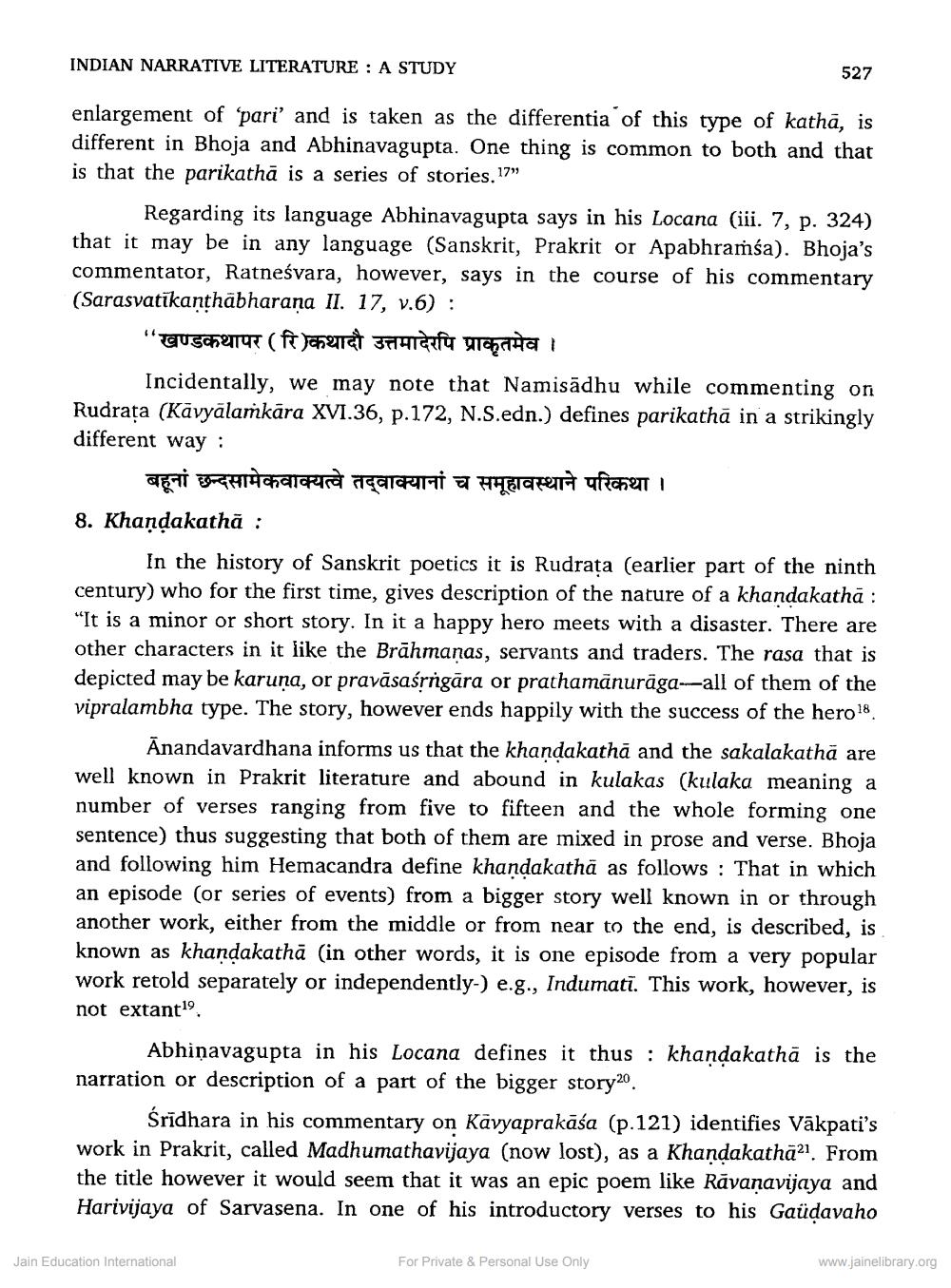________________ INDIAN NARRATIVE LITERATURE : A STUDY 527 enlargement of 'pari' and is taken as the differentia of this type of katha, is different in Bhoja and Abhinavagupta. One thing is common to both and that is that the parikatha is a series of stories. 17" Regarding its language Abhinavagupta says in his Locana (iii. 7, p. 324) that it may be in any language (Sanskrit, Prakrit or Apabhramsa). Bhoja's commentator, Ratnesvara, however, says in the course of his commentary (Sarasvatikanthabharana II. 17, v.6) : "Qusahele (for Toneret 371413fu utoanhai Incidentally, we may note that Namisadhu while commenting on Rudrata (Kavyalamkara XVI.36, p.172, N.S.edn.) defines parikatha in a strikingly different way : बहूनां छन्दसामेकवाक्यत्वे तद्वाक्यानां च समूहावस्थाने परिकथा / 8. Khandakatha : In the history of Sanskrit poetics it is Rudrata (earlier part of the ninth century) who for the first time, gives description of the nature of a khandakatha : "It is a minor or short story. In it a happy hero meets with a disaster. There are other characters in it like the Brahmanas, servants and traders. The rasa that is depicted may be karuna, or pravasasrngara or prathamanuraga--all of them of the vipralambha type. The story, however ends happily with the success of the hero 18 Anandavardhana informs us that the khandakatha and the sakalakatha are well known in Prakrit literature and abound in kulakas (kulaka meaning a number of verses ranging from five to fifteen and the whole forming one sentence) thus suggesting that both of them are mixed in prose and verse. Bhoja and following him Hemacandra define khandakatha as follows: That in which an episode (or series of events) from a bigger story well known in or through another work, either from the middle or from near to the end, is described, is known as khandakatha (in other words, it is one episode from a very popular work retold separately or independently-) e.g., Indumati. This work, however, is not extant. Abhinavagupta in his Locana defines it thus : khandakatha is the narration or description of a part of the bigger story20. Sridhara in his commentary on Kavyaprakasa (p.121) identifies Vakpati's work in Prakrit, called Madhumathavijaya (now lost), as a Khandakatha21. From the title however it would seem that it was an epic poem like Ravanavijaya and Harivijaya of Sarvasena. In one of his introductory verses to his Gaudavaho Jain Education International For Private & Personal Use Only www.jainelibrary.org




